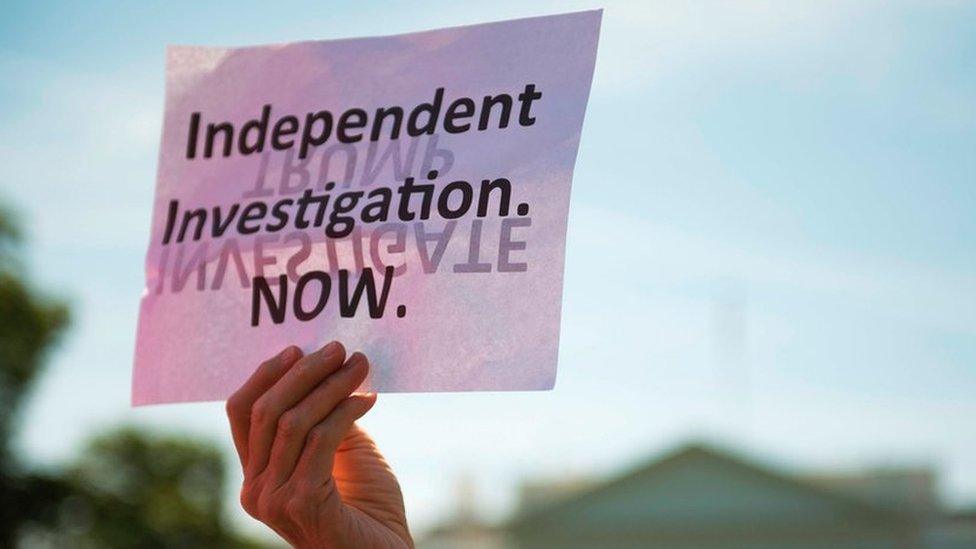Trump-Russia inquiry: President denies trying to fire Robert Mueller
- Published
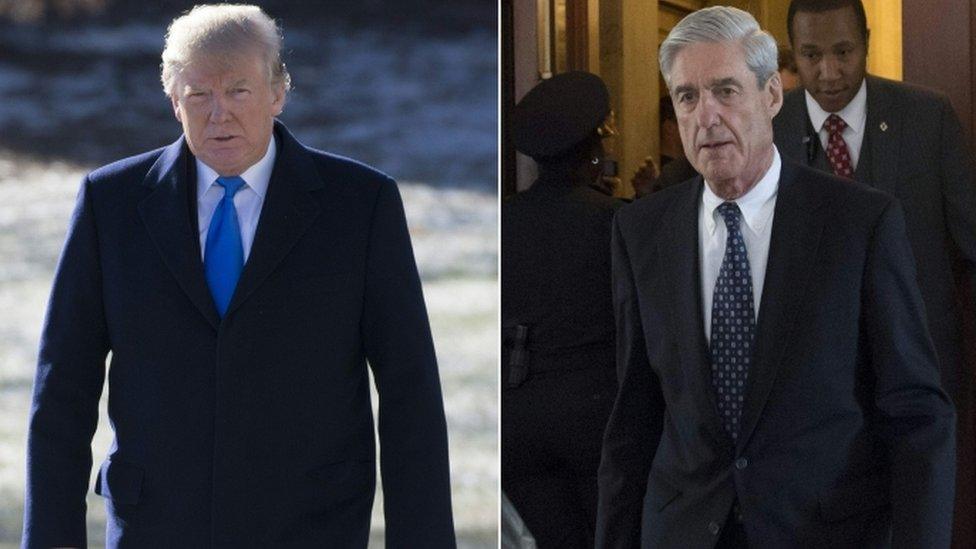
Robert Mueller (R) is leading an inquiry into alleged Russian meddling in the US election
US President Donald Trump has described as "fake news" a report that he ordered the firing of special counsel Robert Mueller last June, but backed down when his own lawyer threatened to resign.
White House counsel Donald McGahn said the sacking would have a "catastrophic effect" on the presidency, the New York Times reported.
Mr Mueller is leading an inquiry into possible Trump campaign collusion with Russia to influence the US election.
Both Moscow and Mr Trump deny this.
"Fake News. Typical New York Times. Fake Stories," Mr Trump said at the World Economic Forum in the Swiss town of Davos, where he gave a speech earlier in the day.
He has also been speaking about other issues:
Russian news agency Tass quoted Mr Trump as saying he "hoped" for more dialogue between the US and Russia
White House officials said Mr Trump was open to rejoining the Paris climate change agreement, if better terms for the US could be agreed
In a CNBC interview, Mr Trump also said he was willing to look again at joining the Trans-Pacific Partnership (TPP) trade deal "if we were able to do a "substantially better deal"
Mr Trump in his speech touted his America First policy, but he told the group that "that does not mean America alone"
Mr Mueller, a former FBI director, was appointed special counsel last May to look into the collusion allegations.
His appointment came after Mr Trump had fired FBI director James Comey, saying in an interview it was because of "this Russia thing". Mr Mueller is also looking into whether that represented an obstruction of justice.

Who is White House counsel Donald McGahn?

A lawyer specialising in campaign finance, he has been described by the New York Times, external as having a "bare knuckle style" and a "personality to match Mr Trump's". He is also a guitarist in a rock band, external.
Mr McGahn spent years working to loosen restrictions on campaign donations and served on the Federal Election Commission (FEC) before joining Mr Trump's campaign. Democrats on the body accused him of undermining the FEC's enforcement activities.
During the campaign, Mr McGahn fought a series of legal battles, including defeating a bid to keep Mr Trump off the New Hampshire ballot on procedural grounds.

Special Counsel Mueller learned of his near-dismissal in recent months, external, while his team interviewed past and present White House officials, the New York Times reports.
As speculation mounted that Mr Mueller could be building an obstruction case against the president, Mr Trump allegedly argued that the special counsel had three conflicts of interest that should stop him heading the inquiry.
These were said to be:
That Mr Mueller abandoned his membership of the Trump National Golf Club in Sterling, Virginia in 2011, over a fee dispute
That Mr Mueller could not be impartial as he had worked for a law firm that previously acted for Jared Kushner, the president's son-in-law
That the investigator had been interviewed to return to his former job as FBI director the day before he was appointed special counsel in May 2017
The White House cited four unnamed sources. A later story in the Washington Post cited two people familiar with the episode.
President Trump said he welcomed being quizzed by Mr Mueller
Hints have continued in US media, including this December, that the president might fire the special counsel. His opponents in the Democratic party would see any such move as a bid to stifle justice, and it could trigger an effort to impeach Mr Trump.
However, Mr Trump in December denied that he was planning to fire Mr Mueller.
In June, a friend of Mr Trump told US media the president was considering removing Mr Mueller, but White House officials publicly rejected his claims.
"I don't want to get into a pissing match with the White House press shop, but I stand by the comments I made in June that the president was considering firing Robert Mueller," Newsmax CEO Christopher Ruddy told The Daily Beast after the most recent reports.
In response to the latest reports, Senator Mark Warner, the Democratic vice-chairman of the Senate intelligence committee, warned that "firing the special counsel is a red line that the president cannot cross".
"Any attempt to remove the special counsel, pardon key witnesses or otherwise interfere in the investigation would be a gross abuse of power," he said.
Mr Trump said on Wednesday that he was willing to be questioned under oath by the Mueller inquiry.
He told reporters he was "looking forward" to it, subject to the advice of his lawyers, and that an interview could happen within two to three weeks.
- Published25 January 2018
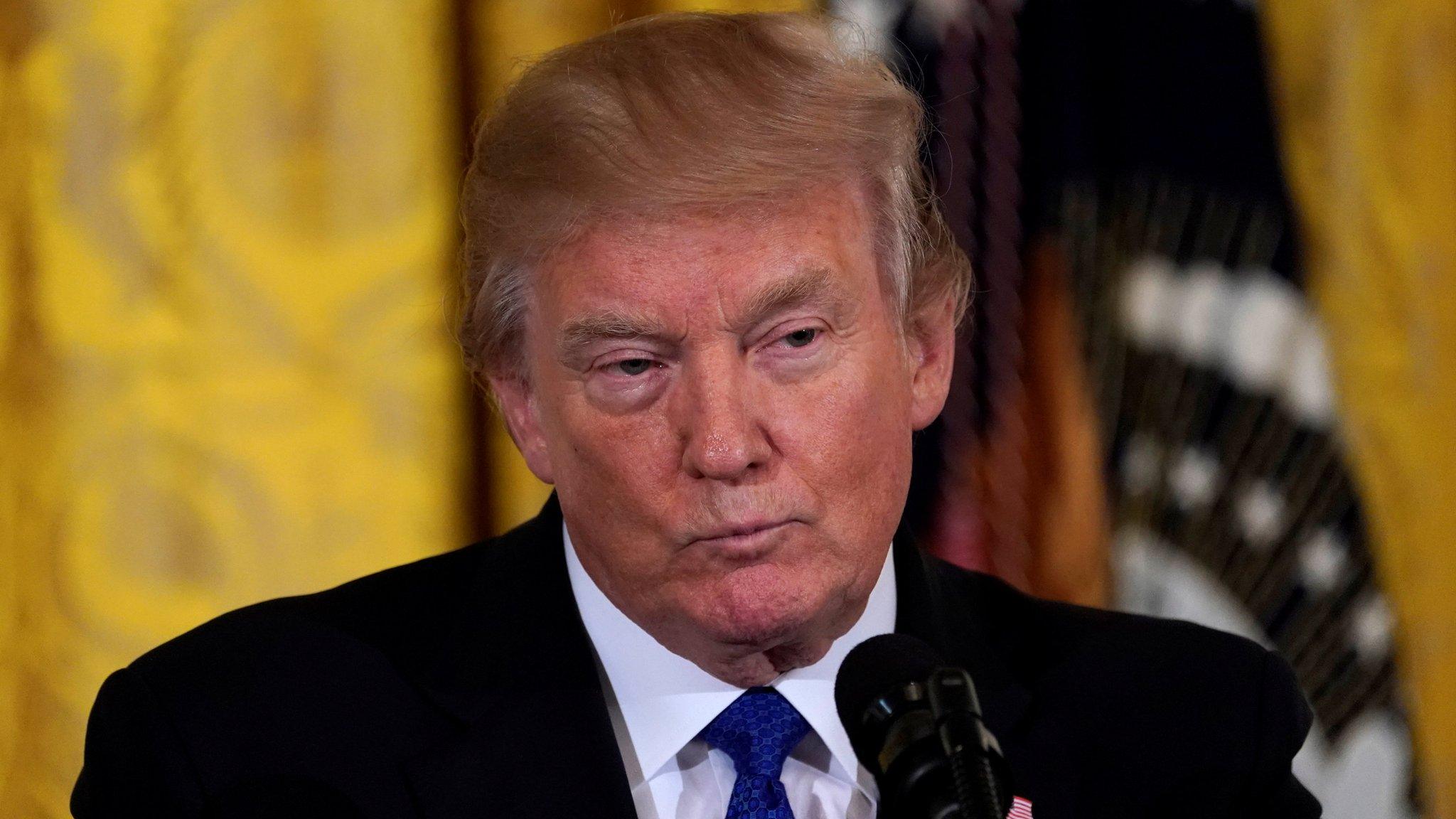
- Published26 January 2018
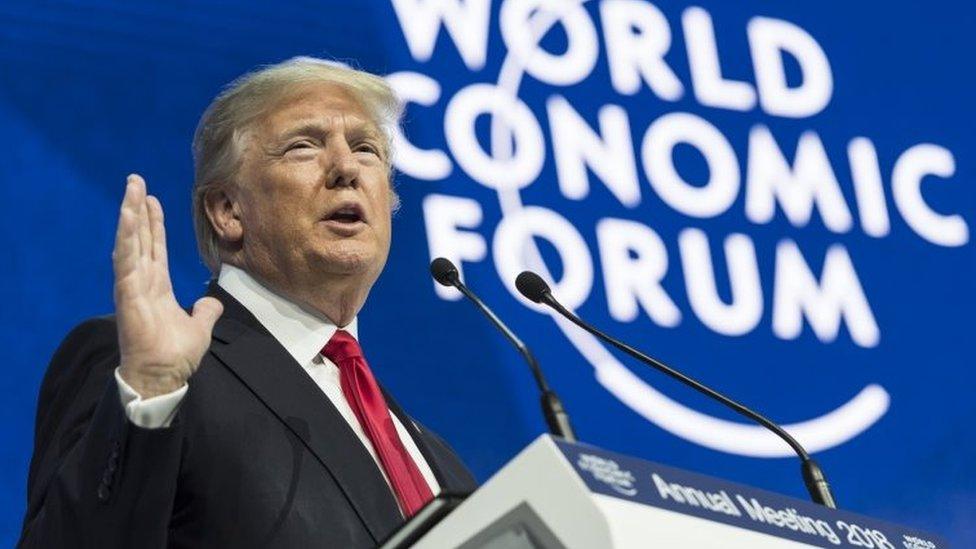
- Published25 January 2018
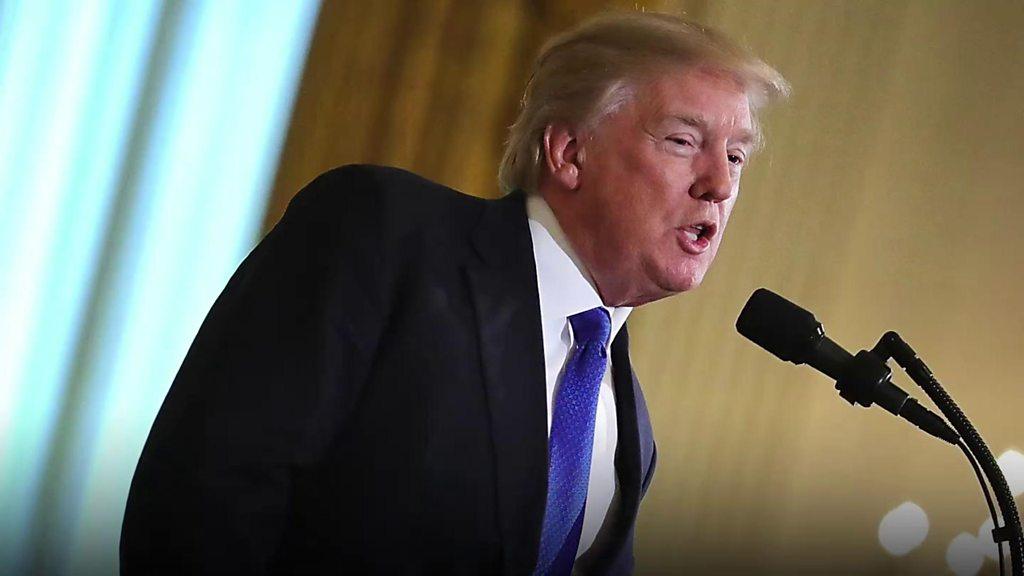
- Published24 July 2019
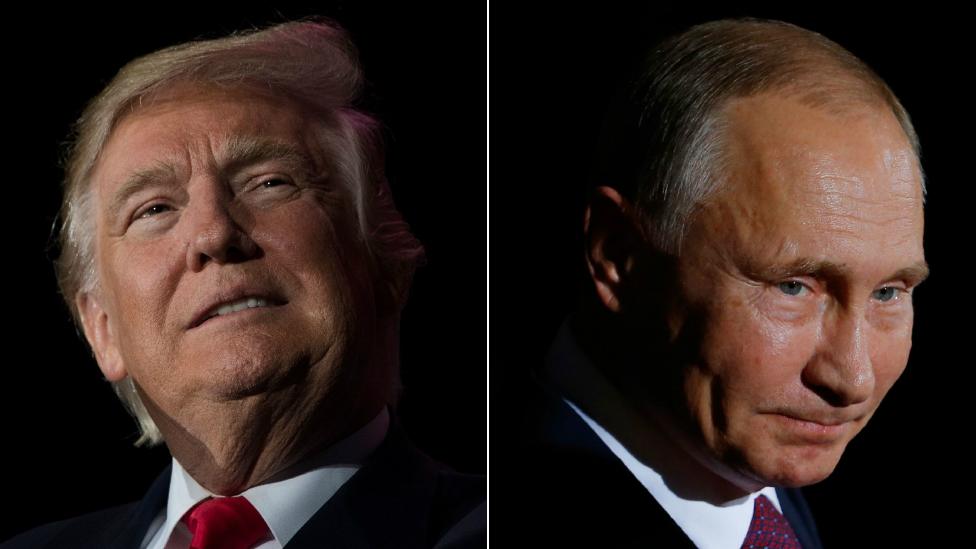
- Published3 December 2017
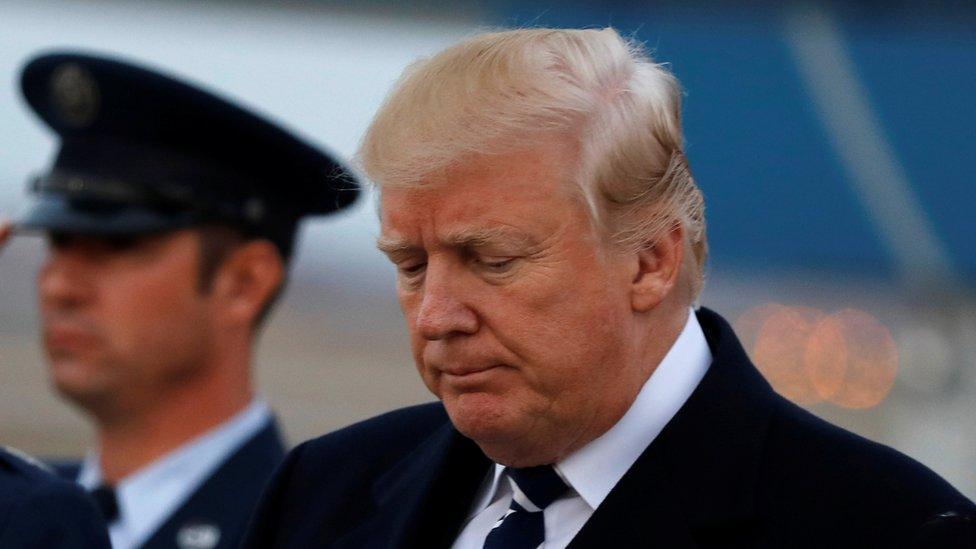
- Published17 December 2017
- Published21 December 2017
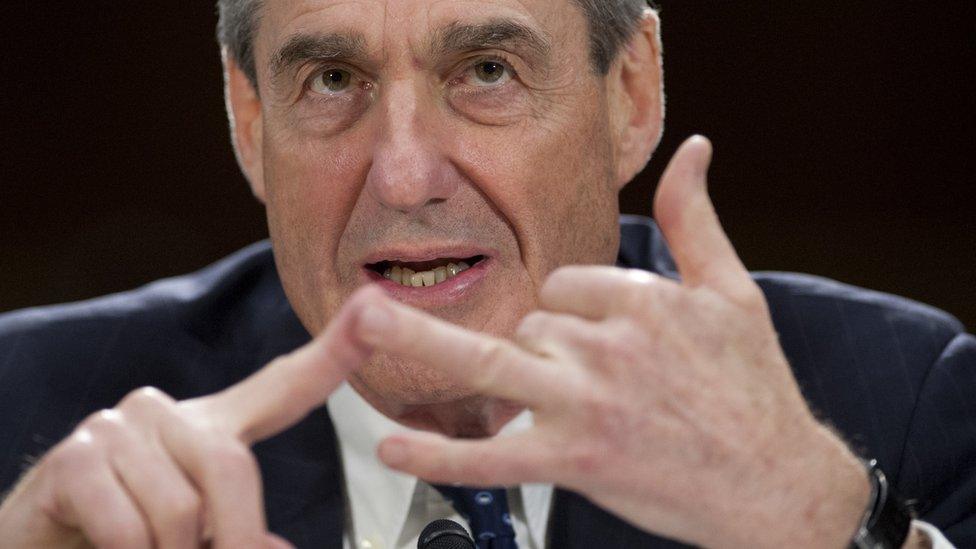
- Published17 May 2017
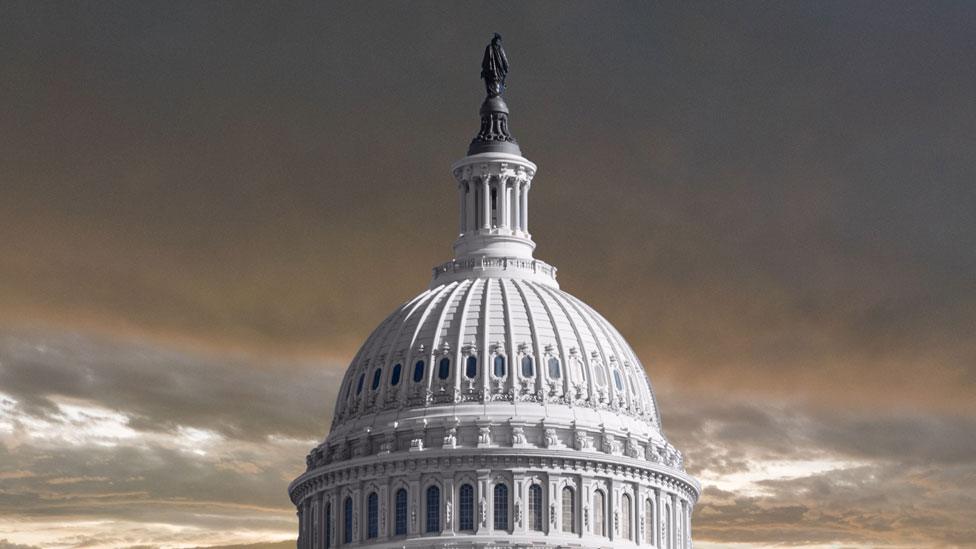
- Published24 July 2019
